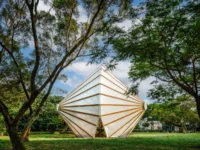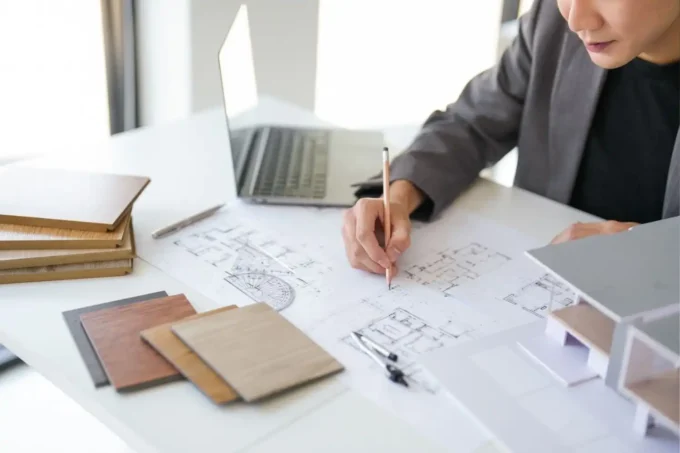Studying architecture isn’t for the faint-hearted. It’s a challenging yet fulfilling journey that demands commitment and passion. As we navigate through the intense workload, late nights, and tight deadlines, it’s crucial to stay motivated and focused on our goals. Why did we choose architecture? What drives us to create and innovate?
Our time in architecture school can be incredibly rewarding if we approach it with the right mindset and strategies. From managing our time effectively to respecting our shared studio space, there are numerous ways to enhance our educational experience. Let’s explore some valuable tips and insights that can help us thrive in our architectural studies and set the stage for a successful career.

Essential Skills for Architecture Students
Architecture education demands a unique set of skills that go beyond traditional classroom learning. Developing these essential skills not only aids in surviving architecture school but also lays the foundation for a successful career.
Master Time Management
Effective time management is crucial in architecture school. Balancing project deadlines, class schedules, and personal life can be challenging. By organizing tasks and setting priorities, we can avoid the chaos that comes with last-minute work. Using tools like planners, digital calendars, and task management apps helps streamline our workflow. Studies indicate that maintaining a structured schedule enhances productivity and reduces stress, allowing us to produce higher quality work.
Develop Drawing and Modeling Proficiency
Drawing and modeling are fundamental skills in architecture. While some of us may have a natural talent for these, practice can significantly improve our proficiency. Regularly sketching ideas in both 2D and 3D builds our confidence and sharpens our ability to communicate concepts visually. Using software like AutoCAD, SketchUp, and Rhino enhances our technical skills and prepares us for professional settings. Moreover, consistent practice helps us develop a unique style that can set our work apart.
Learn Effective Communication and Presentation
Communication and presentation skills are indispensable in architecture. Being able to articulate our ideas clearly and persuasively is as important as the designs themselves. Practicing public speaking, engaging in group discussions, and seeking feedback improves our ability to convey our vision. Preparing well-organized presentations with visual aids like slides and models ensures our concepts are understood and appreciated. According to industry professionals, strong communication skills significantly impact project success and client satisfaction.
Mastering these essential skills in architecture school prepares us for the professional world and ensures we can thrive in both academic and career environments.

Effective Study Habits in Architecture Education
Prioritize Tasks and Projects
Focusing on task prioritization streamlines the workload in architecture education. Create a detailed list of assignments and projects, ranking them by deadlines and complexity. Use tools like Trello or Asana for tasks, making it easier to visualize progress. An organized approach helps balance immediate assignments with long-term projects, reducing stress and last-minute rushes. By handling priorities effectively, we can allocate sufficient time for in-depth research and high-quality work.
Embrace the Importance of Revision and Critique
Valuing feedback is critical in architecture studies. Incorporate peer and tutor critiques into project iterations. Schedule regular review sessions to ensure the design process remains dynamic and resilient. Constructive criticism not only refines our concepts but also nurtures growth by exposing us to diverse perspectives. Revising work based on feedback ultimately leads to stronger, more polished projects.
Invest in Self-Care and Balanced Living
Maintaining a balance between work and personal well-being is essential. Adopt habits that promote mental and physical health, such as regular exercise and sufficient sleep. Integrate short breaks into study sessions to prevent burnout and maintain productivity. A balanced lifestyle enhances creativity and efficiency, enabling us to tackle complex architectural challenges with a clear mind and renewed energy. Implementing these self-care practices fortifies our endurance throughout the demanding architecture education journey.

Building a Strong Foundation
Understand the Basics of Architecture
Design is a process marked by trial and error. We should approach it with an open mind, seeing each failure as an opportunity to learn. It’s about viewing problems through many lenses to find the most effective solutions. Focus on understanding fundamental principles, such as balance, symmetry, and scale, which form the backbone of architectural design. Without these, advanced concepts lack grounding. Grasping these basics early ensures more confident, innovative problem-solving later.
Network and Build Professional Relationships
Networking is vital in architecture. Forming relationships with peers, professors, and industry professionals can open doors to opportunities and mentorship. Attend architecture events, join student organizations, and participate in workshops. Engaging in these activities helps us gain insights and advice from those more experienced. This network can assist in various ways—from critiquing projects to offering career guidance. The connections we build now will be invaluable as we progress through our careers.
Engage with External Learning Opportunities
While classroom learning is crucial, external experiences provide broader perspectives. Internships, site visits, and industry talks expose us to real-world applications of our studies. These opportunities not only reinforce theoretical knowledge but also help in understanding practical constraints and innovations in practice. We should actively seek out internships and volunteer for projects to experience diverse architectural styles and techniques. Engaging in these experiences enriches our education and prepares us for future professional challenges.

Preparing for a Successful Career
Gain Practical Experience Through Internships
Internships provide invaluable hands-on experience in the architecture field. They allow us to apply classroom knowledge to real-world scenarios and gain insight into daily operations within different types of architectural firms. When seeking internships, aim for reputable studios that offer substantial learning opportunities. Whether working on-site, in an engineering office, or with a manufacturer, practical experience enhances our understanding and improves our resumes. Securing internships early on can improve our job prospects post-graduation.
The Role of Public Speaking in Architecture
Public speaking skills are crucial in architecture for presenting ideas and projects effectively. During critiques or client meetings, clear communication can make a significant impact. Engaging with local architecture events or becoming a student member of professional associations can help us develop these skills. Participating in presentations, networking events, and workshops enables us to practice and improve our public speaking, making us more confident and persuasive in professional settings.
Embrace Technological Tools and Software
In today’s digital age, proficiency in architectural software is essential. Tools like AutoCAD, Revit, and SketchUp streamline our design processes and improve efficiency. Investing in a high-performance computer prevents delays caused by technical issues and maximizes our productivity. Familiarity with these tools not only facilitates efficient design but also gives us a competitive edge in the job market. Continuous learning and staying updated with the latest technological advancements ensure we remain relevant in the evolving architectural landscape.

Conclusion
Architecture education demands dedication, strategy, and adaptability. Understanding why architecture drives your ambition is crucial. Being passionate improves not only your academic performance but also your overall experience.
Effective time management is vital. Treat your studio hours like a job. Completing tasks during these hours prevents late-night work, which, as studies show, reduces productivity. A high-performance computer is essential. It ensures smooth workflow and prevents technical issues that can disrupt your work and peace of mind.
Internships offer hands-on experience and preparation for your career. Choose reputable studios where you can learn seriously. These experiences clarify what to expect in the field, allowing you to better navigate your remaining university years.
Non-architecture courses affect your GPA and graduation timeline. Use these classes to broaden your horizons. This diverse knowledge can ultimately enhance your architectural designs.
Finally, embrace technological tools like AutoCAD and Revit. These tools streamline design processes and boost efficiency. Always back up your files to avoid losing critical work.
Our collective efforts and strategies pave the way for success in architecture education. Stay determined and continuously seek improvement.
- architecture career advice
- architecture education advice
- architecture education tips
- architecture learning resources
- architecture practical experience
- architecture practice tips
- architecture productivity tips
- architecture professional development
- architecture skill development
- architecture study habits
- architecture study techniques
- architecture time management
- architecture training programs
- Boost architecture skills
- effective architecture learning
- hands-on architecture experience
- improve architecture skills
- manage time in architecture studies
















Leave a comment